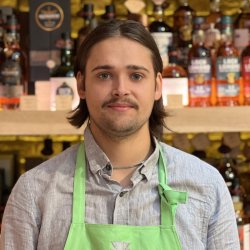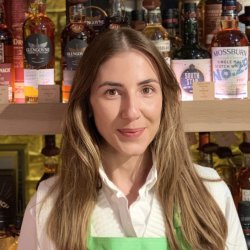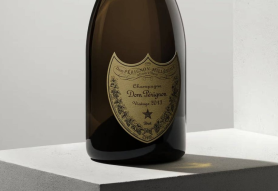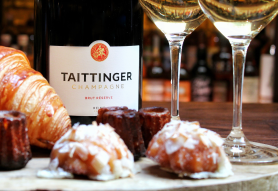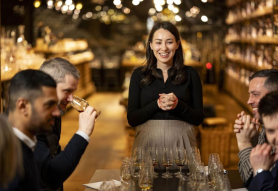Hedonism Meets... Dennis Malcolm
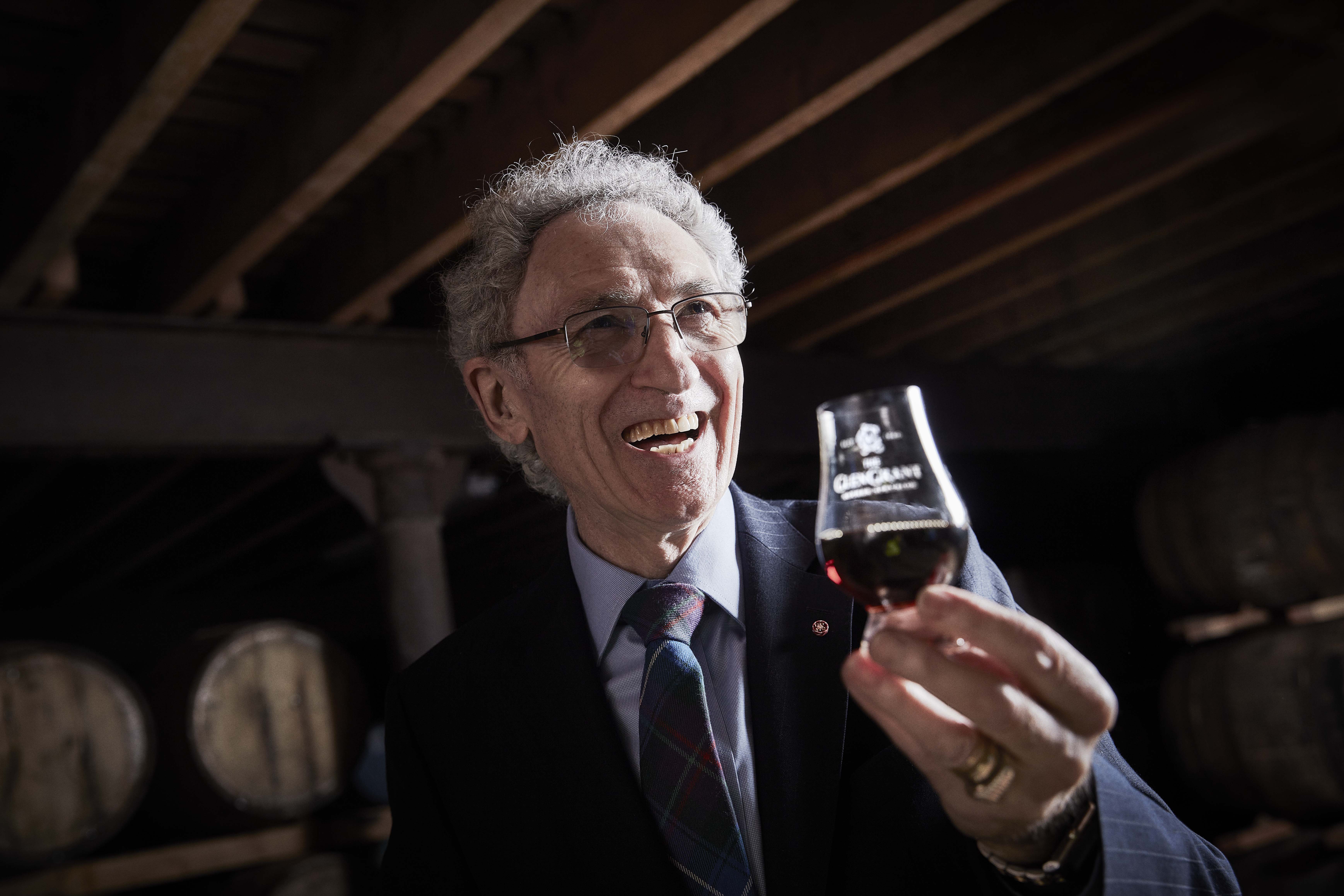
Dennis Malcolm's links to Glen Grant could not be stronger. The Master Distiller was born on the grounds on the distillery in 1946, joining the team as an apprentice in 1961. Dennis now oversees all aspects of production at Glen Grant, one of Speyside's most iconic producers of single malt Scotch.
We caught up with Dennis to talk about all things Glen Grant and celebrate the start of his 61st year in the industry - Slàinte Mhath!
Dennis, thanks so much for your time - what is a typical day in the life of a Master Distiller?
I always say that there are four ingredients in The Glen Grant – the barley, the yeast, the water and most importantly, the people. Every day, the very first thing I do when I get to work is walk around the plant and chat to all of the different operators who work there. Whether they be on the quality side, the bottling side, the production side – I have a chat with them all and see how they’re doing and how everything is keeping with them.
It’s important that they’re comfortable and happy every day and it gives me a chance to hear first-hand if there are any issues and check that everything is in working order, with all processes functioning as they should be. Then I have a nose of the daily spirit sample, because we take a sample every day. If you’re nosing something all of the time, I find that you begin to notice finer nuances that you haven’t picked up on before, that you might not notice if you only do it every couple of months. I usually do that first thing before I have a coffee. Then sit down with Greig, have a coffee and a chat - he’s the one running the day to day of the distillery so it’s good to catch up with him and get updates on any issues, not just production issues but also to make sure everyone is happy with their work and their schedules.
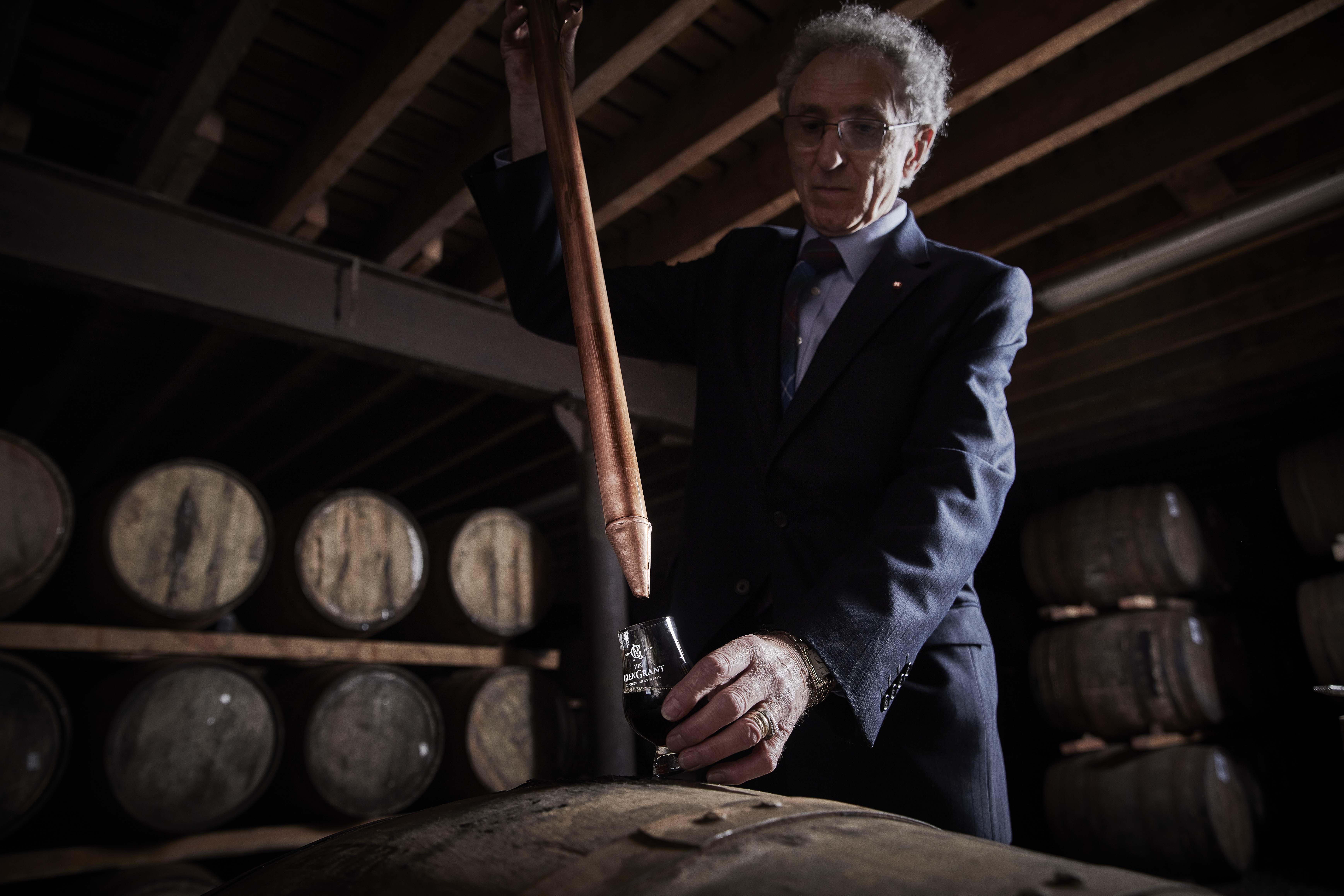
Starting out as an apprentice cooper at the age of 15, you have worked for Glen Grant for over five decades and must have seen a great deal of changes over the years. How has the business evolved during this time?
When I started of course everything was mostly manually operated. There were 62 people based at The Glen Grant for example back in ’61 – the yeast and the barley would come in in bags and we would have to carry everything manually. There were no forklifts until 1963 so you definitely needed a lot of people back then. As the decades went on, they modernised the process and instead of manually pressing a button, you’d have a programable controller which would do it for you. Another decade later and there were computers so that everything can be controlled from a screen, with the system checking the processes worked smoothly every second. Over the years, they shrunk the number of workers at the distilleries and put in automated systems. These systems were very effective in ensuring the consistent quality of the liquid, as the computers could carry out checks throughout the day.
However, people are very much key to the whisky making process and that it’s people who are passionate that really make a product, so when Campari took over in 2006 they started hiring again. We started filling our own casks and took on 5 people to do so. We doubled the number of people in the bottling hall to manage all of the different machines. We needed a quality manager, an assistant quality manager, an engineer, an electrician and so on. When Campari took over we had 5 employees and in the present day, we have 27.
There has also been an improvement in the diversity of people, which is a key change and reflects the growing diversity in the industry as a whole. When I started, there was only one woman working at The Glen Grant, but now it’s 50/50 men and women, with women in some of the key positions at the distillery.
For readers new to the world of Glen Grant, what whisky would you recommend when first exploring the Glen Grant range?
I tend to recommend The Glen Grant 10 year old for beginners to the range. It’s very well balanced and complex and you’ll find descriptors of the 10 year old in every expression, whether up or down in age. I would also suggest the Arboralis as it was the stepping-stone to the premiumisation of the range.
Last month saw the hotly-awaited global release of The Glen Grant Dennis Malcolm 60th Anniversary Edition. Can you share the story of this special edition with us?
The world predominantly thinks of The Glen Grant as a young spirit, with the top of our range for the last few years being the 18 year old. We have released older expressions in the past and I knew that the 60-year old would be good because in the 90’s, Douglas Mckessick bottled up a 30 year old to celebrate the 150th anniversary, the majority of which were sherry butts. At that time this liquid was only 30 years old and it was already very high quality. There was a lovely level of oakiness – sometimes the oaky notes can overtake the flavour profile of the liquid, but this wasn’t the case, in fact I could not find the oaky note to start, so I knew that was a fantastic sign. The 60 year old was filled on October 24th 1960 and is the oldest, to date, distillery bottling in the brand’s 181 year history, with just 360 Decanters of the liquid available worldwide.
At Glen Grant, there is a real focus on bourbon-cask maturation, why is this?
In the 60’s there was a huge explosion of bourbon wood coming over to the UK, especially Scotland and the coopers here would use the wood to build casks. Under American law you can only fill bourbon into new wood and barrels can only be used once – which is great news for our business. A lot of bourbon barrels came in and we were producing a fair quantity of liquid back then. We found that the bourbon really complimented the light, fruitiness of The Glen Grant, as you get the creamy, toffee vanilla notes from the bourbon – it was a great marriage for liquid. It perfectly complimented the spirit that we made. The whole industry went predominantly bourbon for a long time, and it still is I would say, except for the odd distillery. So really it was because of the availability of bourbon wood coming into the country and how well it complemented our liquid.
How important is the role of terroir in the unique expression of Glen Grant whiskies?
I don’t consider it particularly important. We wanted to grow our own barley as we want to make The Glen Grant with Scottish Barley. I don’t think terroir influences the barley and the earth as much as it influences the grapes from the vines.
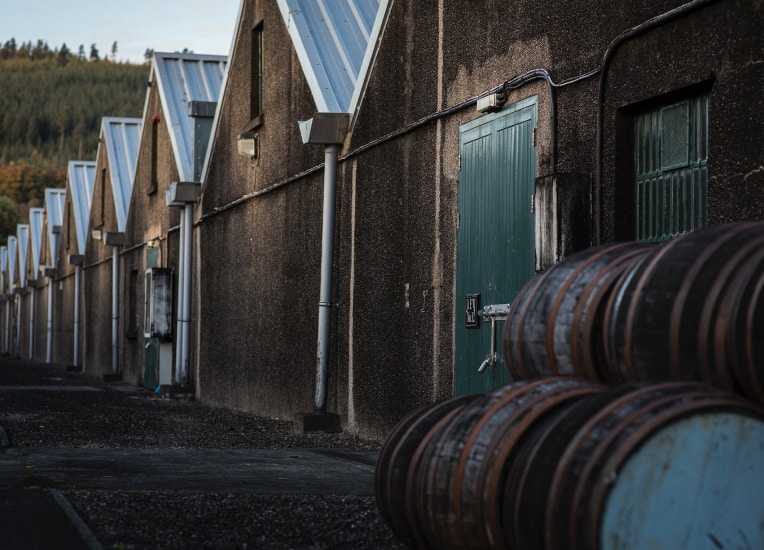
In 2016, you were awarded the honour of an Officer of the Order of the British Empire for your services to business and the Speyside community. What did such a recognition mean for you?
That was a huge surprise and I could not understand why they had selected me, as for me it’s a way of life. I did not get to be where I am without previous generations looking after me and making sure that I had all the skills I needed to progress. From the church and the people there organising local activities, to the local schools, I felt that there were so many people in the community who had an important role to play in where I am today. I felt pleased because the honour was for the community that I’m from and for the whisky industry as a whole. I had not heard of anyone in the whisky industry getting an OBE, so it was nice to see the industry getting that recognition for how much it does for the country. Speyside is the heart of the whisky industry and we are all a big whisky family, here to help one another.
I have always felt that it is important that we contribute to the rest of the area – for example if the distillery can give back to the schools and support the future generations, that’s very important to me. I have always been involved in the local community, especially with the church, and I was happy to be able to give something back and contribute something to them through that recognition.
Looking at the industry more broadly, what would you like to see more of in Scottish whisky?
From The Glen Grant perspective, I’m looking forward to seeing an increase in the mature end of the range extending. From a wider industry perspective, the way it’s going just now I think it will be interesting to see what becomes of the growing number of craft and smaller distilleries and I’m interested to see how they innovate and which ones come out as the gems. I think it is interesting to see the new distilleries emerge and it will be exciting to see what they will have to offer in 10 years time.
What exciting plans do you have for Glen Grant in the coming years?
I would like to see the premiumisation and the range extension to continue on so that we can show everyone that the 60-year-old is not just a one-off good cask, and that The Glen Grant has an amazing range to offer. There is much more to come!















